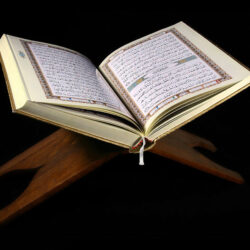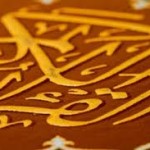Voting & Mocking Islam
Shortened Question:
- What is the Islamic verdict of voting in national elections?
- Will a person leave the fold of Islam by laughing at any aspects of Islam?
Question:
- I was wondering what is the Islamic ruling regarding voting in a country`s national election? And if it is compulsory to vote in the country while prohibited in Islam then what should one do?
- If someone laughs at an Islamic ruling in a book of Fiqh, does that take him out of the fold of Islam? Can you please mention all the various cases of whether the ruling comes from the Qur`an, Sahih Hadith, Daeef Hadith, Ijmaa` or Ijtihaad.
Answer:
In the Name of Allah, the Most Gracious, the Most Merciful.
As-salāmu ‘alaykum wa-rahmatullāhi wa-barakātuh.
Introductory points:
- This article is meant to present an academic as well as a practical point of view on voting without issuing a verdict of Wujub or otherwise. The appropriate decree of Shariah will depend upon the political situation in a country and the learned and leading Ulema there will advise accordingly.
- It is also important to note that the maxims quoted herein are not general. The Fuqaha have stipulated the conditions for their application which will change according to circumstances.
Voting in a Democratic State: A Shariah Perspective
- It is a reality that just as there are many Muslims residing in Muslim dominated countries, there are many Muslims that reside in non-Muslim countries as well.
It is an unfortunately reality that Muslims residing in a Muslim dominated country do not have the advantage of openly and freely practising Islam on every level[1]. Similarly, Muslims living as minorities in non-Muslim countries are also confronted with a challenge of establishing and practising Islam to the best of their ability.
As citizens of non-Muslim countries, Muslims will be directly affected by the policies enacted by the government. Executive members of a government, for example, members of Parliament, Mayors and Councillors are elected through a `majority vote`. Power of such executive positions influence important policies, and such power should not be underestimated. Therefore, Muslims should consider which candidate is best suited for them in terms of their security, welfare and advancing the cause of Muslims[2] and vote for such a candidate. Muslims should secure their maslahah (the public interest) by opting for a candidate who is responsive to ethnic minorities in their needs and promotes ethical foreign policy. The Muslim vote and testimony[3] could be instrumental in the election of a candidate who may respond to Muslim issues and stand up against injustices and oppression[4].
There is a Fiqhi maxim درء المفاسد أولى من جلب المصالح which denotes that to remove an evil and harm is much better than gaining and attracting any welfare[5]. In the instance of Muslims not voting for that candidate who is most suitable[6], the wrong person in power could be detrimental for Muslims and Islam[7]. Voting a suitable candidate could be a Muslim`s effort to obliterate the potential harm which could have been caused on the local, national and international levels at the hands of a hostile Islamophobic candidate. Also, voting is an opportunity to:
- take to account those who advocate policies hostile to Muslims;
- inhibit the growth of extremist parties;
- ward off parties with aggressive foreign policies;
- promote a healthy contest between candidates to assure Muslims their rights in issues, such as providing safety against racist attacks, rendering permission for opening up Masjid and faith schools, allowing for segregated public facilities, introducing Halal meals in schools, acknowledging the right to pray at work, legally recognising the authority of the Imam in conducting marriages and burials, distributing inheritance according to Sharia, allowing Muslim women to wear the Hijab (veil) and much more.
To strive to maintain the sanctity and honour of Muslims is an obligation upon Muslims. There is a Fiqhi maxim ما لا يتم الواجب إلا به فهو واجب which means that it is necessary to adopt that without which an obligation cannot be fulfilled. The active participation of the Muslim community in the political process is a means to uphold the rights of Muslims, allow the Muslims to maintain their honour and prevent them from being abused and discriminated.
During instances of uprisings, riots and unrest, in places where Muslims enjoyed official positions, the honour of Muslims, especially the chastity of Muslim women, was preserved and businesses were safeguarded. Conversely, in such instances where no Muslim was an official in position of power, women were raped and Muslim businesses were destroyed.
In such instances, it does not make any academic or practical sense to question the validity of voting and its importance. Furthermore, it is improper for a citizen of a democratic state to object to voting due to Shar`ee reasons, while he submits to uphold the Constitution of the Democratic State when attaining citizenship of that country.
There is another Fiqhi maxim أهون البليتين or أخفّ المفسدتين (lessor of the two evils) which is when one is faced with only two options and both are evil, one graver than the other, one opts for the lessor of the two in order to save himself from the worse[8]. Hence this maxim is relevant here when the Muslims will be voting to bear a little harm of participating in an un-Islamic democratic dispensation while warding off a greater evil of being governed by those who may be more harmful to Muslims. Many contemporary Fuqaha have discussed the issue of taking part in democratic elections and advised that in the current circumstances, it is in the interest of Muslims to vote for a candidate that is best suited for Muslims and Islam[9].
- In principle, all the rulings of Sharia are directly or indirectly deduced from the Qur`an and hadith. Irrespective of the category of ruling, laughing and ridiculing any aspect of Sharia is a serious offence[10]. In some instances one risks losing his Imaan[11] and in other instances the perpetrator is declared a Fasiq or deviated person[12]. The fact that one is declared even a deviant due to his irresponsible behaviour in Sharia is in itself a matter of serious concern[13].
And Allah Ta’āla Knows Best
Hanif Yusuf Patel
Student Darul Iftaa
UK
Checked and Approved by,
Mufti Ebrahim Desai.
References
[1] من لم يتمكن من إقامة دينه فى بلد كما يحب وعلم أنه يتمكن من إقامة فى غيره حقت عليه الهجرة
[Tafseer al-Madaarik, 1:276]
[2] [Fatawa Mamoodiyyah, 21:410-11, Dar al-Ifta al-Jamiah Farooqiyah, Karachi]
[3] عن انس قال سئل النبي صلي الله عليه وسلم عن الكبائر فقال الاشراك بالله وعقوق الوالدين وقتل النفس وشهادة الزور [Saheeh al-Bukhari,1:362, Qadeemee Kutub Khana, Karachi]
انّ الله يأمركم ان تؤدو الامانات الي اهلها واذا حكمتم بين الناس ان تحكموا بالعدل، ان الله نعمّا يعظكم به [Al-Qur`an, 4:58]
واذا قلتم فاعدلوا ولو كان ذا قربى وبعهد الله اوفوا [Al-Qur`an, 6:152]
واجتنبوا قول الزور [Al-Qur`an, 22:30]
ولا تكتموا الشهادة ومن يكتمها فانّه آثم قلبه [Al-Qur`an, 2:283]
[4] من يشفع شفاعة حسنة يكن له نصيب منها، ومن يشفع شفاعة سيّئة يكن له كفل منها [Al-Qur`an, 4:85]
كنتم خير امّة اخرجت للناس تامرون بالمعروف وتنهون عن المنكر وتؤمنون بالله [Al-Qur`an, 3:110]
[5] Al-Ashbah wa An-Nadha`ir ma`a Sharh Hamawi, 1:264]
[6] انّ خير من استأجرت القوىّ الامين [Al-Qur`an, 28:26]
[7] عن أبي بكر الصديق ... سمعت رسول الله صلي الله عليه وسلم يقول إن الناس إذا راؤ الظالمفلم يأخذوا علي يديه أوشك أن يعمهم الله بعقاب
[Sunan at-Tirmidhi, 2168; Sunan Ibn Majah, 3997; Sunan Abi Dawood, 4338; Musnad al-Imam Ahmad, Musnad Abi Bakr As-Siddiq, 32]
عن سهل بن حنيف عن النبي صلي الله عليه وسلم انه قال: من أذل عنده مؤمن فلم ينصره وهو قادر على أن ينصره أذله الله عز و جل على رؤوس الخلائق يوم القيامة [Musnad al-Imam Ahmad, 16330]
فقال أبو سعيد .. سمعت رسول الله صلي الله عليه وسلم يقول: من رأى منكم منكرا فليغيره بيده فإن لم يستطع فبلسانه ومن لم يستطع فبقلبه وذلك اضعف الإيمان [Saheeh Muslim, 101; Sunan Ibn Majah, 4005; Musnad al-Imam Ahmad 11165]
[8] [Ifaadaat-e-Ashrafiyyah, p.33; The principles and codes of Law in Hanafi Fiqh, Mo. Ashraf Ali Thanwi, p.80; لو كان أحدهما أعظم ضرراً من الآخر فإن الأشد يزال بالأخف ... إذا تعارض مفسدتان روعى أعظمهما ضرراً بارتكاب أخفهما
[Al-Ashbah wa An-Nadha`ir ma`a Sharh al-Hamawi, 1:258 & 1:261] ثم الأصل في جنس هذه المسائل أن من ابتلي ببليتين وهما متساويتان يأخذ بأيتهما شاء، وإن اختلفا ، يختار أهونهما
[Gamz Uyoon al-Basaa`ir Sharh al-Ashbah wa an-Nadhaa`ir li al-Hamawi, 1:261, Idarah al-Qur`an wa al-Uloom al-Islamiyyah, Karachi] إذا تعارض مفسدتان يختار أهونهما [Qawaa`id al-Fiqh, no. 405, p.140]
محظورا كما في غاية البيان من ابتلي ببليتين وجب أن يختار أقلهما [Maraaqi al-Falaah, Kitab as-Salah, p.471, Qadeemee]
[9] For a detailed discussion on elections and voting see: [Jawaahir al-Fiqh, Mufti Muhammad Shafi`, p.295-301, Maktabah Dar al-Uloom Karachi; Fiqhi Maqaalaat, Mufti Muhammad Taqi Uthmani, 2:287-302; also in Fatawa Mahmoodiyyah, 4:618-20]
[10] The great author of Sharh al-Aqaid an-Nasafiyyah asserts:
واستحلال المعصية صغيرة كانت او كبيرة كفر اذا ثبت كونها معصية بدليل قطعي ... والاستهانة بها والاستهزاء علي الشريعة كفر
To regard a proven sin as lawful, minor or major, is disbelieve. To disparage sin & to mock Shariah is Kufr
[Sharh al-Aqaid an-Nasafiyyah, Page.193, Dar al-Beirut][Radd al-Muhtar ala ad-Durr al-Mukhtar, 5:474]
[11] [An-Nibraas Sharh Sharh al-Aqaa`id, 338-9]
من استخف بالقرآن أو المسجد أو بنحوه مما يعظم في الشرع كفر
[Sharh al-Fiqh al-Akbar, p.167; Majma` al-Anhaar, 1:692-3; Radd al-Muhtar ala Durr al-Mukhtar, 4:222]
ويكفر بالاستهزاء با لأذان [Al-Bahr ar-Ra`iq, 5:206]
والاستهزاء بحكم من أحكام الشرع كفر [Sharh al-Fiqh al-Akbar, p.176]
See: [Fatawa Mahmoodiyyah, 2:512-6, Dar al-Iftaa Jamiah Farooqiyyah, Karachi]
[12] واما الاجماع ففيه خلاف وتفصيل والمذكور فى الاصول الحنفية ان الاجماع على مراتب فالاقوى اجماع الصحابة مع تصريحهم بالحكم المجمع عليه وهو قطعي كالاية والخبر المتواتر ويكفر منكره ثم الذي صرح به بعض الصحابة وسكت الباقون ثم اجماع من بعد الصحابةعلي حكم لم يظهر فيه خلاف ممن سبقهم وهما كالحديث المشهور ويضلل منكرهما ويفسق ثم اجماعهم علي قول سبقهم فيه مخالف وهو كخبر الواحد ياثم منكره ولا يفسق فالاجمال الأول قطعي والبواقي ظنية
[An-Nibraas sharh Sharh al-Aqaa`id, p.338-9, Maktabah Haqqaniyyah, Multan]
Also see: [Radd al-Muhtar ala ad-Durr al-Mukhtar, 4:223, H. M. Saeed Company]
[13] وقد نزّل عليكم في الكتاب أن إذا سمعتم آيات الله يكفر بها ويستهزأ بها ، فلا تقعدوا معهم حتي يخوضوا في حديث غيره ، إنكم إذاً مثلهم ، إن الله جامع المنفقين والكفرين في جهنم جميعا
[Al-Qur`an: 22:32]
[Al-Qur`an: 4:140] ذلك ، ومن يعظّم شعآئر الله فانّها من تقوى القلوب
من تهاون بالأدب عوقب بحرمان السنن ومن تهاون بالسنن عوقب بحرمان الفرائض ومن تهاون بالفرائض عوقب بحرمان المعرفة
[Sharh al-Adab al-Mufrad, 2:397; Mu`eed an-Ni`am, 85]
DISCLAIMER:
The Ask Our Imam site hopes to respond to queries relating to Islamic law. It is not an Islamic Law Shari`ah Court. The questions and answers found on this website are for educational purposes. However, many of the rulings rendered here are distinct to the specific scenario and thus should be read in conjunction with the question and not taken as a basis to establish a verdict in another situation or environment. This site bears no responsibility in these responses being used out of their intended context, nor to any party who may or may not follow the responses given and is being hereby exempted from loss or damage howsoever caused. None of the responses rendered may be used as evidence in any Court of Law without prior written consent of Our Imam. Any reference to another website or link provided in our responses or article should not be taken as an endorsement of all the content on that website; in fact, it is restricted to the particular material being cited.
Posted in Aqaa'id (Beliefs)MiscelleaneousQur'an & Hadeeth on 18th Jan 2016 by Our Imam | 2102 Views











